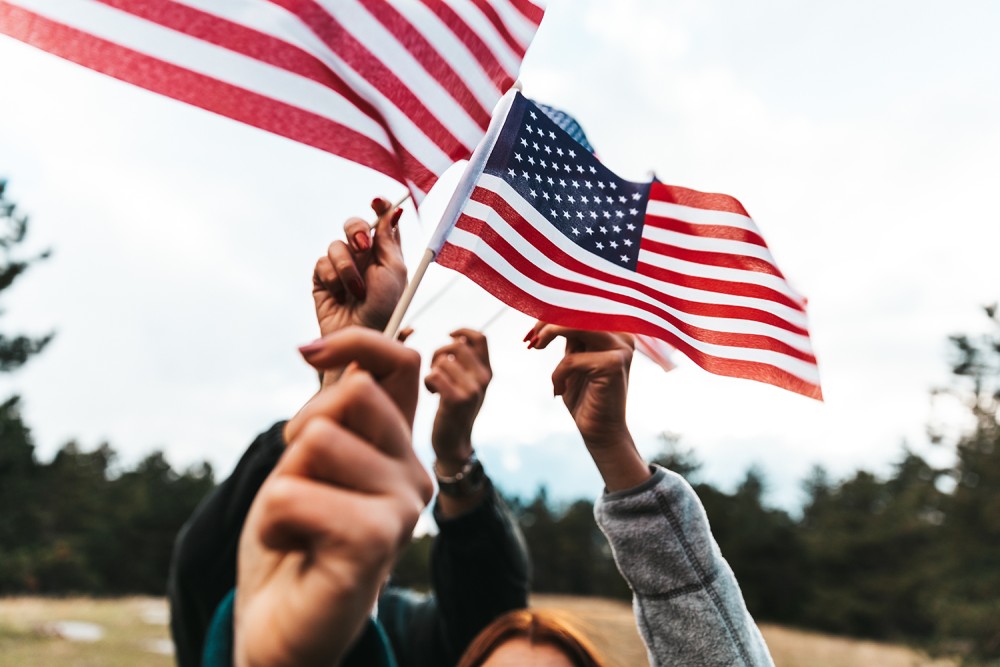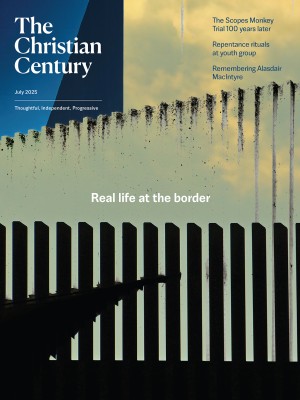The good kind of patriotism
The church is called to be a loving critic, not a national cheerleader.

Photo by LeoPatrizi / E+ / Getty
On the stucco exterior of Buchenwald concentration camp’s main gatehouse, there was a wooden sign. Recht oder Unrecht mein Vaterland, it said: My country, right or wrong. The jingoistic ring of this saying—borrowed from 19th-century English—suited the Third Reich well. An uncritical love of country held a warm appeal for the Nazis. Authoritarian governments thrive on the people’s unquestioning obedience, and uncritical patriotism usually follows.
Each year as July 4 approaches, I aim to read some piece of American literature that will balance my joy for the goodness of the United States with a reminder of its shadow side. Independence Day has a rightfully celebratory air. The all-night blitzkrieg of neighborhood fireworks isn’t for me. But the returning smell of sunscreen, the happiness of neighbors talking to each other outside, the stoking of the cookout grill for friends, Tchaikovsky’s 1812 Overture, red, white, and blue anything—these are all lovely elements of the Fourth of July.
Read our latest issue or browse back issues.
Amid all this, I want more perspective and a richer sense of history—so I read. Two years ago it was Carol Anderson’s book on voter suppression, One Person, No Vote. Last year it was Frederick Douglass’s address from July 5, 1852, “What to the Slave Is the Fourth of July?” This year it’s portions of the diary of Daniel S. Butrick, a Presbyterian missionary who was serving the Cherokee people when President Andrew Jackson ordered them to leave their ancestral homes in Georgia, Tennessee, and North Carolina. A brief excerpt of Butrick’s explosive anger over the deadly Trail of Tears westward should make you wince:
Now, in view of the whole scene, how does the United States government appear? A great Nation, laying aside her dignity, and with thousands of soldiers, and all her great men, and all her mighty men, and all her powerful generals, and with all her civil and military force, chasing a little trembling hare in the wilderness, merely to take its skin and send it off to broil in the scorching deserts of the West. O how noble! How magnanimous! How warlike the achievement! O what a conquest! What booty! How becoming the glory and grandeur of the United States!
If we’re open to any kind of patriotism beyond the uncritical variety—say, a constructive patriotism—then we should know these moral failures and injustices well. They’re never a joy to articulate, but to acknowledge the pain they present is to enlarge our lives. To think critically about our nation’s history and to be excited about taking care of each other is the stuff of thoughtful citizenship.
I preached on and around July 4 for four decades. I’m not sure I ever succeeded in moving large numbers of people to add informed critique to their obvious love of country. But what I’ll never tire of believing is this: The role of religion in the public sphere is to be a loving critic of all things legislative, administrative, and judicial, submitting every policy, pronouncement, and law to moral and ethical scrutiny. The church is uniquely poised to declare that patriotism is no substitute for religion, that capitalism and militarism can never be confused with Christianity, and that our first loyalty is to the manger and not the throne. In Henri Nouwen’s famous phrase, the church is to be a “living reminder” to the nation that it remembers its past sins, as the means of building a healed and whole future.
So, what kind of patriot shall we be? William Sloane Coffin liked to say there are three kinds, two bad and one good: “The bad patriots are the uncritical lovers and the loveless critics of their country. The good patriots are those who carry on a lover’s quarrel with their country, a reflection of God’s eternal lover’s quarrel with the entire world.”






